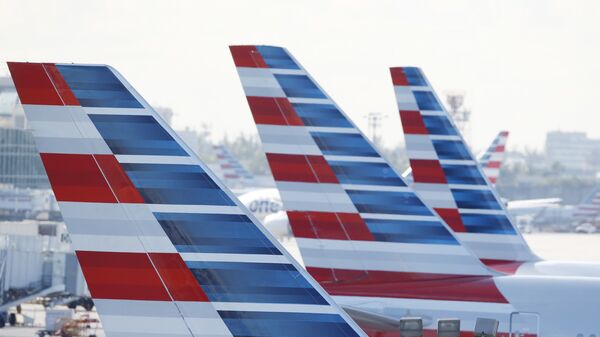"American Airlines remains in continuous contact with the Federal Aviation Administration, Department of Transportation and Boeing. Based on the latest guidance, American anticipates that the resumption of scheduled commercial service on American’s fleet of Boeing 737 MAX aircraft will occur April 7, 2020," a Thursday press release by the airline stated. "Once the aircraft is certified, American will run flights for American team members and invited guests only prior to April 7."
Reuters reported Thursday that FAA chief Steve Dickson told Boeing CEO Dennis Muilenburg he was “concerned that Boeing continues to pursue a return to service schedule that is not realistic due to delays that accumulated for a variety of reasons."
“Both the FAA and Boeing must take the time to get this process right," Dickson emphasized. The FAA has made clear that no 737 Max jet will be certified to fly again before the year is out.
The FAA hit Boeing last week with a $3.9 million fine for negligence in airworthiness certification and installation of subpar wing slats, also on its 737-series aircraft.
American Airlines has regularly extended its groundings of the beleaguered aircraft, with its previous announcement in November saying the planes would not carry commercial passengers until March 5. It was soon joined by two other US airlines, Southwest and United.
A pair of deadly crashes in Ethiopia and off the coast of Indonesia in March 2019 and October 2018 respectively, exposed the dangerous error made by plane designers in introducing the Maneuvering Characteristics Augmentation System (MCAS) to the 737 Max. The system, about the existence of which pilots were not alerted, forces the plane's nose down when it detects a stall. However, faulty sensor readings caused the system to work unnecessarily, pushing the two planes' noses into the ground and killing a total of 346 people.
An industry expert told Sputnik that Boeing added the MCAS as cheap compensation for a problem created by the wider plane's larger engines, saying company executives told their engineers the system was "a very simple modification and we got to do this on the cheap and we got to do this quick," because the company was in tight competition with industry rival Airbus.
One irate Boeing investor, Kirby Family Partnership, sued the company last month for failing to take action to fix the problem before the second deadly crash. Boeing is estimated to have set aside $100 million to pay potential compensation fees associated with the accidents and another $5 billion to reimburse airlines for costs associated with grounding of the 737 Max jets.


